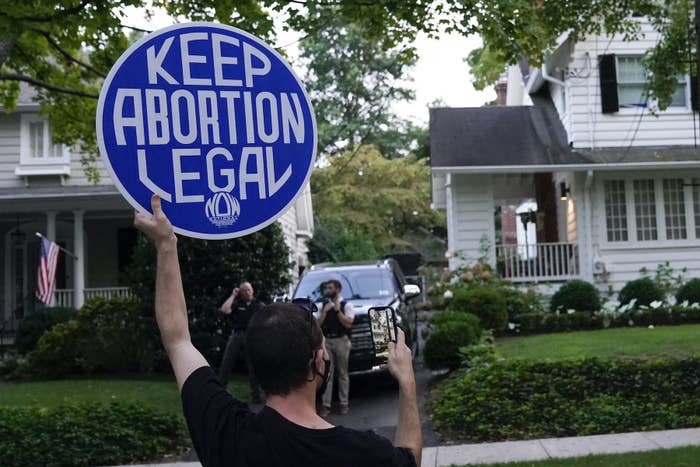
After a Texas doctor shared over the weekend why he violated the state's six-week abortion ban, a disbarred lawyer in Arkansas and an Illinois man on Monday filed lawsuits against him, highlighting the bizarre enforcement mechanism that allowed the law to go into effect earlier this month.
They're the first legal tests of SB 8, the Texas law that bans nearly all abortions in the state. Unlike earlier similar laws, which were ruled unconstitutional, SB 8 is not enforced by local officials. Instead, private citizens may file lawsuits against anyone they believe assisted a patient in obtaining an illegal abortion, and they could earn thousands of dollars for doing so.
Oscar Stilley, who is currently serving a 15-year federal sentence for tax evasion and conspiracy from home confinement, asked for $100,000 in his complaint filed in the district court of Bexar County, Texas.
In his complaint, Stilley acknowledged he has no ties to Texas or the abortion provider, but he pointed out that, per how SB 8 is written, that's not required for a lawsuit. SB 8 allows lawsuits to be filed by "'any person,' without limitation as to residency or citizenship in the State of Texas, status as a felon, condition of 'official detention,' disbarment from the practice of law, public disgrace, difficulties getting due process, etc," he wrote.
On Saturday, Dr. Alan Braid, a San Antonio–based OB-GYN, wrote poignantly in a Washington Post op-ed about why he provided an abortion to a woman who was in her first trimester of pregnancy but beyond the point that fetal cardiac activity could be detected, around six weeks.
“I understand that by providing an abortion beyond the new legal limit, I am taking a personal risk, but it’s something I believe in strongly,” Braid wrote in the op-ed. “I have daughters, granddaughters and nieces. I believe abortion is an essential part of health care. ... I can’t just sit back and watch us return to 1972.”
Braid said he acted out of a duty of care to his patient when he performed the abortion on Sept. 6.
"I wanted to make sure that Texas didn’t get away with its bid to prevent this blatantly unconstitutional law from being tested," wrote Braid, who owns Alamo Women's Reproductive Services. The clinics and the Center for Reproductive Rights, which represents them, did not respond to BuzzFeed News' request for comment.
Stilley, who did not immediately respond to BuzzFeed News, wrote in his blog that he wanted to meet Braid's challenge to the law.
"If he was trying to get sued, he succeeded," Stilley wrote, adding he would continue to provide updates on developments in the case. "Let the litigation begin, and may the best argument win."
In another lawsuit against Braid that was filed Monday, Illinois-based lawyer Felipe N. Gomez identified himself as a "Pro-Choice Plaintiff." In the lawsuit, which was first reported by KSAT, he asked that SB 8 be ruled unconstitutional because it violates Roe v. Wade.
BuzzFeed News has reached out to Gomez for comment.
But Stilley's and Gomez's cases reveal how broadly the state law can be applied and how virtually anyone can pursue legal steps against abortion providers should they suspect that SB 8 was violated.
People who receive abortions cannot be sued under SB 8; it's about the providers or those who help a patient. Anyone who suspects an abortion provider of violating SB 8 can sue them for at least $10,000. This also includes anyone who aided a person in obtaining an abortion by helping them receive pills or driving them to receive in-person care.
Stilley said in the complaint he called Braid on Monday morning and asked if he "might repent of his ideology," but the doctor did not return the call. The Arkansas man has now requested an injunction prohibiting Braid from performing any abortions in violation of the state law in addition to being paid at least $100,000. Gomez did not seek any financial reward in his respective suit.
In the meantime, other litigation on SB 8 continues. A hearing on the Department of Justice's motion for an injunction on the law will take place Oct. 1. The department filed its motion a week after Texas law took effect, declaring the federal government had the “authority and responsibility” to protect citizens from states threatening their constitutional rights.
The Supreme Court is also set to hear arguments in December in a landmark case about Mississippi's 15-week abortion ban.
